General description
Vimentin is encoded by a single-copy gene mapped to human chromosome 10p13. 53kDa vimentin protein belongs to type III intermediate filament (IF) family and is specifically expressed in normal mesenchymal cells. Vimentin protein with 466 amino acids is characterized with a highly conserved a-helical “rod†domain that is flanked by non-α-helical amino- terminal “head†and carboxy-terminal “tail†domain.
Specificity
The antibody localizes vimentin in fibroblasts, endothelial cells, lymphoid tissue and melanocytes in immunohistochemical staining. It also stains vimentin in sarcomas, lymphomas, and melanomas.
Immunogen
pig eye lens vimentin.
Application
Monoclonal Anti-Vimentin antibody has been used in western blotting and immunocytochemistry.
Monoclonal Anti-Vimentin antibody produced in mouse has been used as a primary antibody to localize vimentin by immunohistochemistry (IHC) and for immunoprecipitation of vimentin.
Monoclonal Anti-Vimentin antibody produced in mouse has been used:
- in immunofluorescence Analysis
- in western blot
- anti-vimentin antibody is injected into mature oocytes before embryo manipulations to bind endogenous vimentin (VIM)
- in immunocytochemistry
Biochem/physiol Actions
Overexpression of vimentin is observed in prostate cancer, breast cancer, endometrial cancer, central nervous system (CNS) tumors, malignant melanoma and gastrointestinal tumors including pancreatic, colorectal and hepatic cancers. Thus, vimentin can act as a target for developing therapeutics for the treatment of cancer. Vimentin plays a crucial role in the vascular endothelial growth factor receptor-1 (VEGFR-1)-induced activation of the protein kinase G (PKG) 1 signaling pathway, stimulating regression of cardiomyocyte hypertrophy. Vimentin filaments are implicated in various physiological process including migration, maintenance of cell shape and tolerance of mechanical stress of mesenchymal cells. Vimentin interacts with LARP6 (La ribonucleoprotein domain family member 6) and stabilizes type I collagen mRNAs and might play a vital role in the development of tissue fibrosis. Vimentin plays an essential role in the maintenance of lens integrity, therefore, mutation of the vimentin gene causes dominant and pulverulent cataract.
Vimentin helps to preserve the structure of cells and stability of tissue in mesenchymal cells. It is involved in tumorigenesis, EMT (epithelial mesenchymal transition) and the metastatic spread of cancer. It also controls infectious internalization of human papillomavirus 16 pseudovirions.
Vimentin is the major cytoskeletal component in immature glia. It is an intermediate filament protein and serves as a substrate for several caspases. The cleavage of this protein by caspase dismantles intermediate filaments and promotes apoptosis.
Storage and Stability
For continuous use, store at 2-8 °C for up to one month. For extended storage, the solution may be frozen in working aliquots. Repeated freezing and thawing is not recommended. Storage in "frost-free" freezers is not recommended. If slight turbidity occurs upon prolonged storage, clarify the solution by centrifugation before use.
Other Notes
This product can be found as purified product that was produced using cell culture hybridoma product.
V6389 Anti-Vimentin antibody, Mouse monoclonal
clone V9, purified from hybridoma cell culture
Disclaimer
Unless otherwise stated in our catalog or other company documentation accompanying the product(s), our products are intended for research use only and are not to be used for any other purpose, which includes but is not limited to, unauthorized commercial uses, in vitro diagnostic uses, ex vivo or in vivo therapeutic uses or any type of consumption or application to humans or animals.
Shipping Information:
Dry Ice Surcharge & Ice Pack Shipments: $40
More Information: https://cenmed.com/shipping-returns
- UPC:
- 42294530
- Condition:
- New
- Availability:
- 3-5 Days
- Weight:
- 1.00 Ounces
- HazmatClass:
- No
- MPN:
- V6630-100UL
- Temperature Control Device:
- Yes












